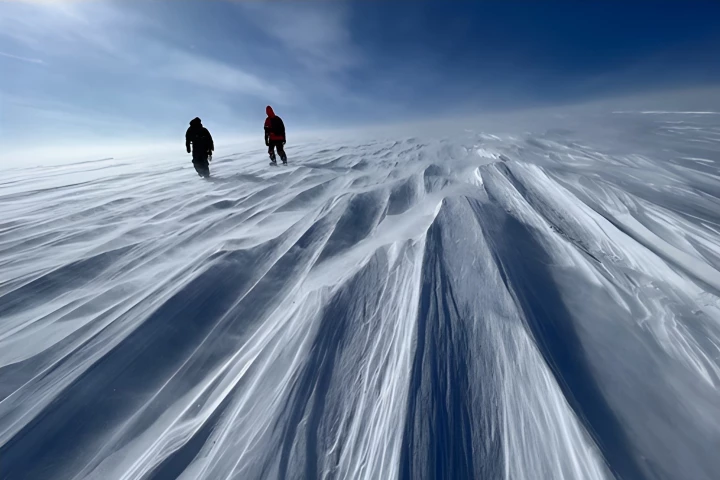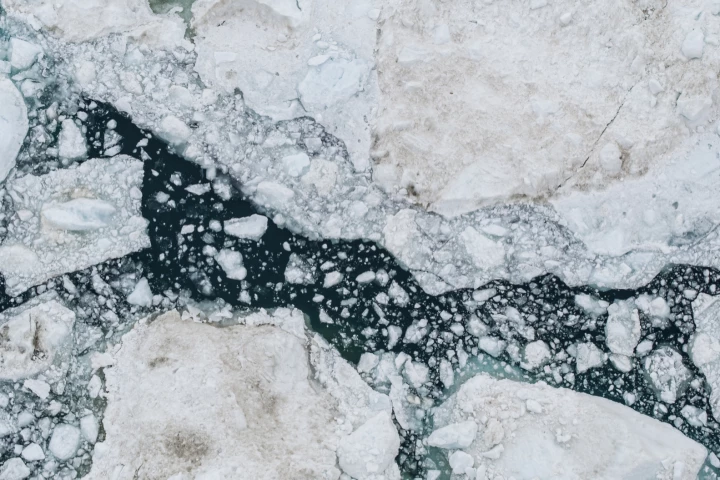Greenland
-
In northwestern Greenland, researchers working on the GreenDrill project have cored through a 500-meter-thick ice dome. They found something startling: the dome completely disappeared 7,000 years ago. And it might do it again.
-
The record for world’s oldest surviving DNA has been shattered. An international team of scientists has discovered DNA dating back 2 million years, preserved in Ice Age sediment that captures an entire ecosystem of known – and unknown – lifeforms.
-
The Soviet Union launched the Sputnik 1 satellite in 1957. Fast forward to 2022, and we are now launching more than a thousand satellites each year, propelling the field of Earth science into unprecedented terrain.
-
Glaciologists studying the seasonal growth and loss of the Greenland Ice Sheet have concluded that even if we stopped burning fossil fuels today, it would shed enough mass to cause global sea levels to rise by almost a foot, at a minimum.
-
Meltwater is falling to the base of the Greenland Ice Sheet with such force, the power produced is comparable to that generated by the world's largest hydroelectric power station, creating a melting effect at the bottom that is "completely unprecedented."
-
In ice cores from both ends of the planet, scientists have discovered evidence of an extreme solar storm that struck Earth around 9,200 years ago, and strangely it seemed to have occurred during a period when the Sun should have been rather quiet.
-
The Kingdom of Denmark just got a teeny bit bigger after researchers from the University of Copenhagen accidentally discovered the world's northernmost island. Measuring only 100 x 200 ft, the still unnamed isle is located off the coast of Greenland.
-
The Greenland Ice Sheet is associated with a range of environmental issues, but now researchers have discovered a surprising new problem. Glacial meltwater was found to be unexpectedly high in mercury, which could end up in ecosystems and seafood.
-
Tracking the changes to huge masses of ice is key to understanding the effects of climate change on the planet, and a researchers in Greenland have developed a new tool that takes the accuracy of such measurements to unprecedented levels.
-
Scientists have made the surprising discovery of fossilized plants 1.4 km beneath the Greenland Ice Sheet. That indicates the island has been ice-free within the last million years – meaning it’s more vulnerable to climate change than we thought.
-
Some scientists speculate that for a while Earth's surface was one big ocean of magma. Now, a team of Cambridge researchers has found elusive evidence from that time, dredged up from an ancient crystal graveyard at the fringe of the mantle and core.
-
New analysis of almost 40 years of satellite data has revealed that the Greenland ice sheet is now shedding so much mass that, even were climate change to halt tomorrow, it is now passed the point of no return and would continue to shrink for some time.
Load More











